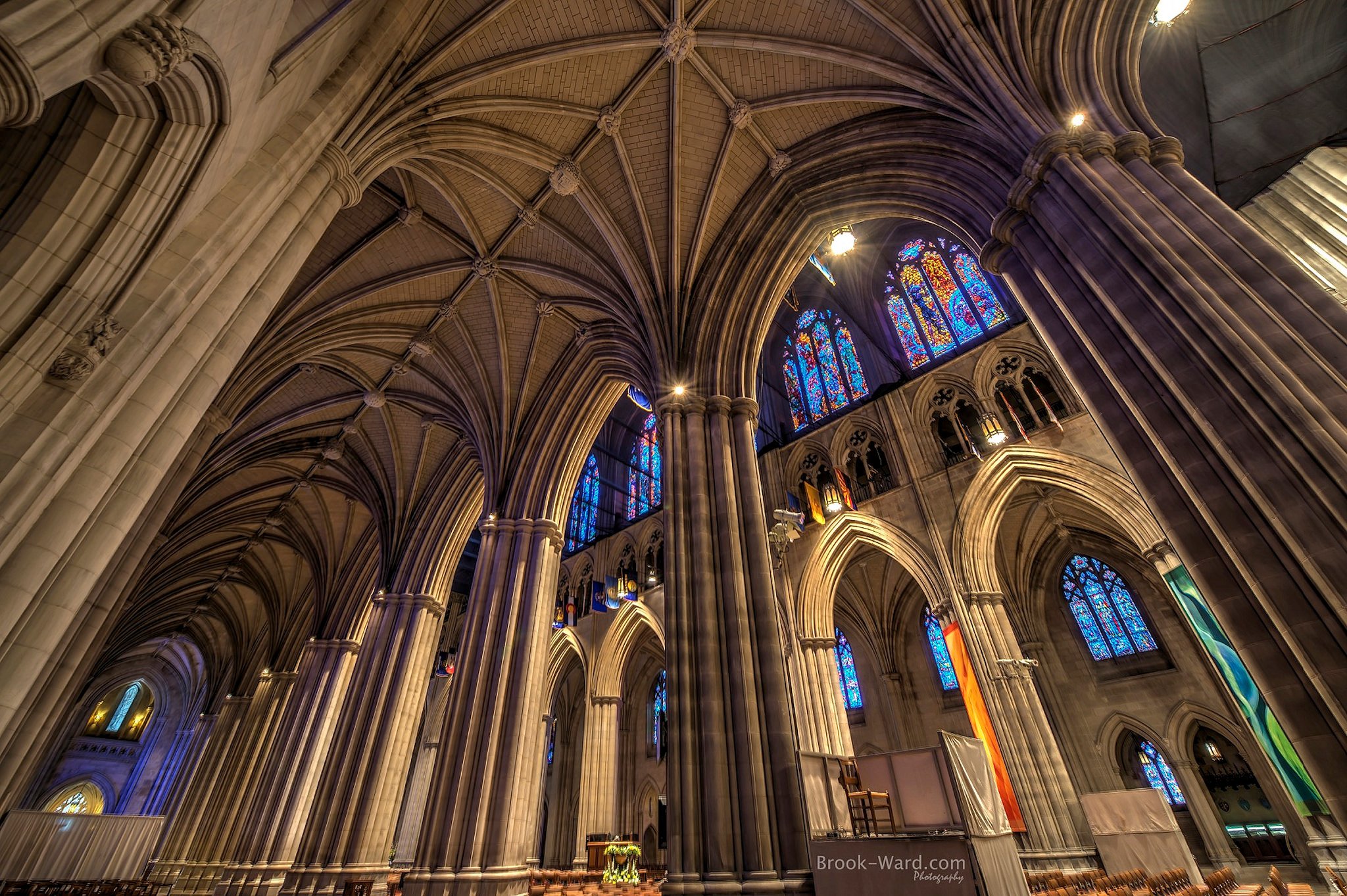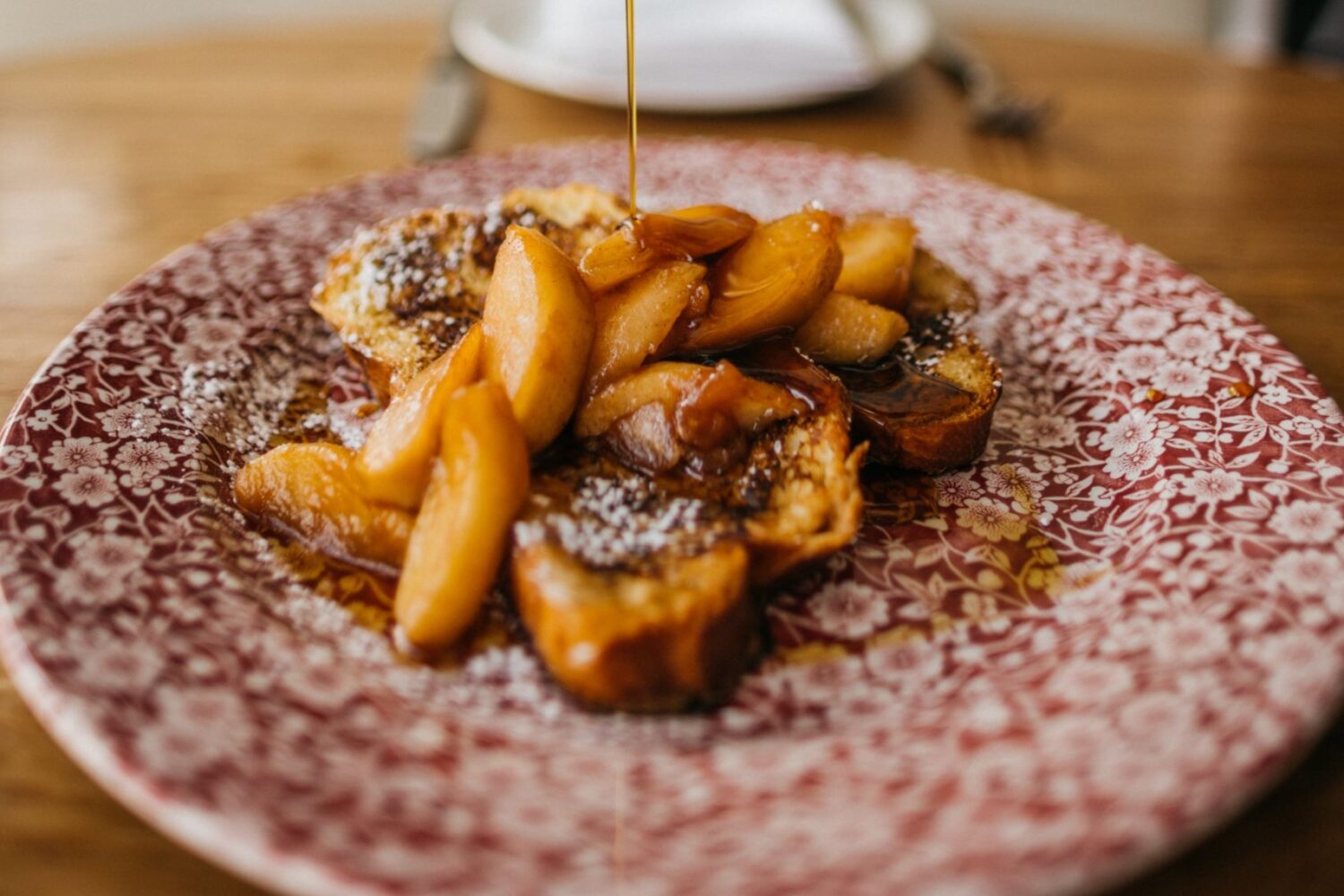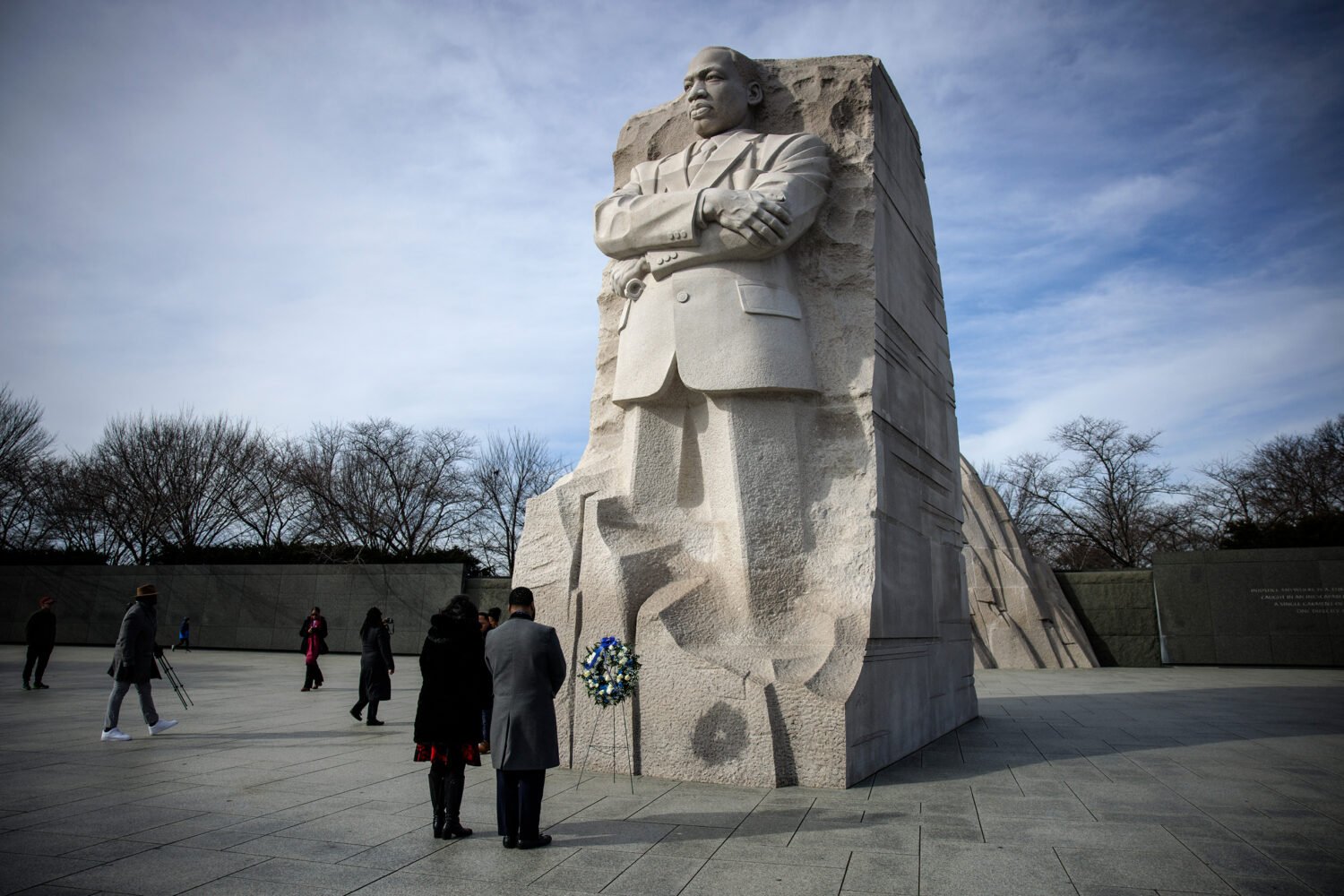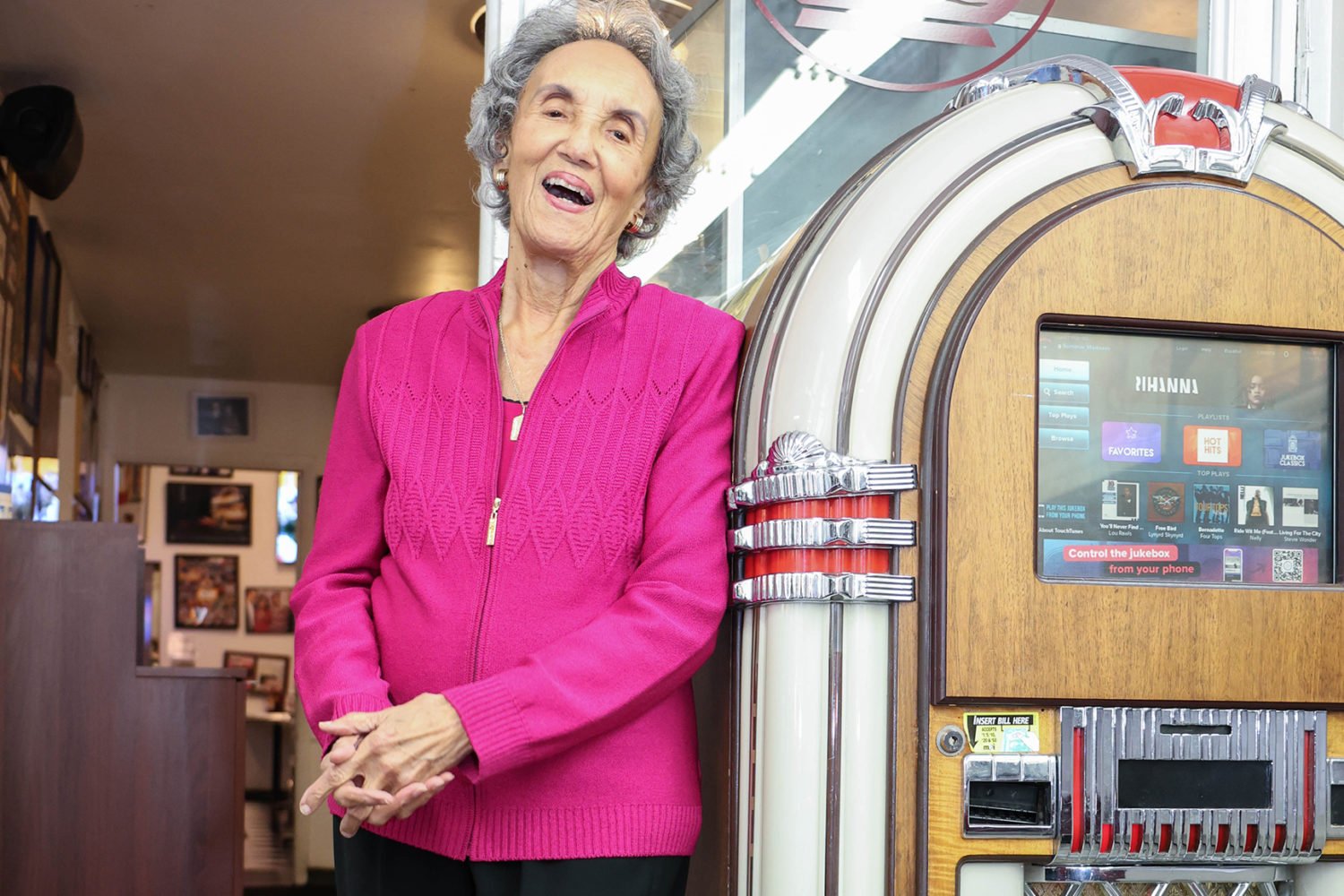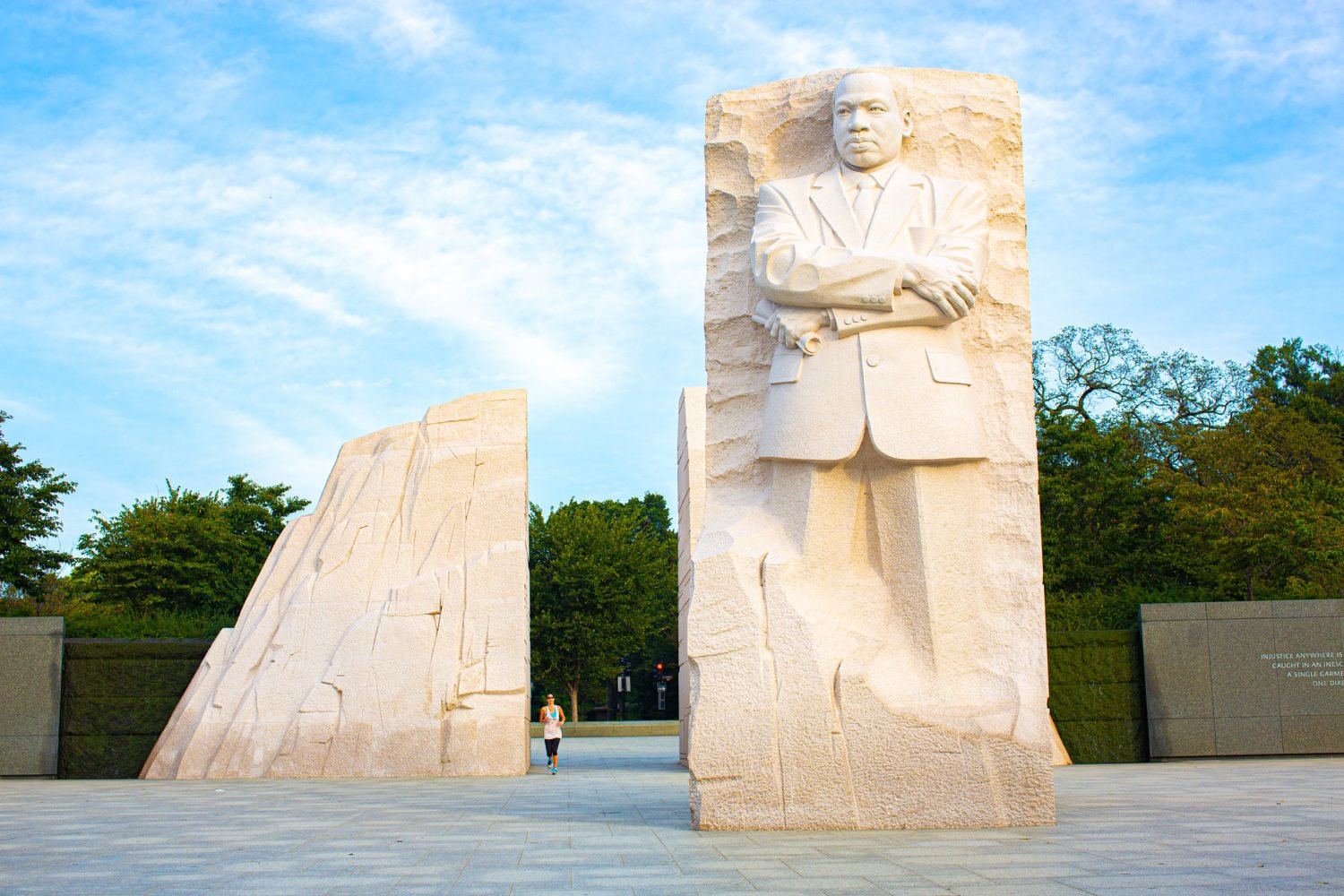On March 31, 1968, days before Martin Luther King Jr. was assassinated in Memphis, he gave a Sunday sermon from the Canterbury Pulpit at the Washington National Cathedral. Fifty years later, the church decided to celebrate Dr. King’s life and legacy by repurposing that sermon and its message through a series of events this week.
Washingtonian caught up with Kevin Eckstrom, the Cathedral’s chief communications officer, to hash out this week’s programming and explain how some of Dr. King’s final words shaped the church’s racial justice initiatives.
What’s on the docket this week?
It starts off at 5:30pm [this Wednesday] with an Evensong, which is a choral-sung prayer service that we do pretty much every day, Monday through Friday. This will have special prayers for Dr. King and some special music in commemoration. Immediately following that, we’re going to play the audio of the sermon from 1968 in its entirety and let people come and go in a contemplative atmosphere. Then at 7:05, we’re tolling the Bourdon Bell, our largest, 12-ton bell we use for funerals, 39 times, for the 39 years of his life. That’s in conjunction with churches across the country and the Civil Rights Museum in Memphis.
It’s starting in Memphis and then gradually spreading throughout the country?
Exactly. That’s Wednesday, and then Sunday, we’re re-creating the service he preached at in 1968 and using some of the same prayers and hymns, and then we will be rebroadcasting the sermon.
How did this come together?
One of the big badges of honor at the Cathedral is that this is the place where Dr. King gave his last Sunday sermon, and it was a big deal at the time. We had thousands of people spilling out of the building on the sidewalks trying to hear him come speak. Whenever tours come through the building, we always point out the pulpit where he preached his last Sunday sermon. It’s been in our life for a long time, but in the last couple years, particularly since Charleston and Charlottesville, racial justice has become a much more prominent part of our work here. Dr. King’s work that he started but didn’t finish [is similar to] the work we’re trying to do. It’s all part of a piece. Our King observations have been going on since January for MLK weekend—we had Otis Moss Jr., one of his contemporaries, who preached here that Sunday, and then we’ve been doing a series of smaller programs in the last couple of months with a racial justice theme, all culminating this weekend.
Do you think it’s fair to say that the Cathedral’s decision to remove the stained glass window of a Confederate flag fell under this racial justice theme?
Put it this way: we didn’t do it because it fell under any kind of umbrella. Ultimately we did it because we thought it was the right thing to do. But certainly I think it’s fair to say that the windows and all of the questions raised by the windows are part of this larger reemphasis on racial justice work that has become a top priority of the Cathedral in the last two or three years. If you go back 50 years or more, Francis Sayre, who was the dean of the Cathedral at the time King was here, was pretty outspoken on civil rights issues. Racial justice work has been part of our life for a long time. I think it’s been reenergized in the last two or three years because of what we’ve seen in the country. The windows were apart of that but they weren’t the whole thing.
And can you tell me more about Dr. King’s ’68 sermon?
What’s interesting, if you go back and look at some of the correspondence, the Cathedral had tried to get him here for a long time, just like every other church. Everybody wanted him to come preach. The invitation said, “we would like you to come and talk about this Poor People’s Campaign, and there’s a lot of concern that it’s going to result in violence or that it’s going to disrupt life in the city of Washington. We think it would be a good opportunity for you to come and explain to people that you don’t think it will be violent.” The Cathedral was clearly on King’s side, but they recognized that not everybody else was. If you look at this point in time in his life, he had become fairly outspoken about the Vietnam War and was losing popularity. When he was invited, it was not a universally popular decision to have him come. People said, “he’s an agitator, a troublemaker, having him here defiles the pulpit, what are you guys doing?” But there was a clear sense that he had a message to share and we wanted to be a part of that.
The title of the sermon is Remaining Awake Through a Great Revolution. His basic idea is that there are people who wait for time to sort things out, who don’t rush or try to push the envelope too much, don’t upset the applecart, essentially. King says that’s never the answer to creating the Kingdom of God as God wants it to be. We have to do the work on that here and now, and the greatest enemy of progress is complacency. If you look at King’s career starting with Letter From a Birmingham Jail, he was pretty critical of a white church, particularly the white moderate church, sitting on its hands not doing anything. He brought that same critique to the Cathedral. There’s a line in there where he says [something like] “it may not be expedient, it may not be popular, but it’s the right thing to do.” Ultimately God is very simple in what he asks of us and he just wants us to do the right thing.
He talked a lot about how this, the richest nation in the world, could allow such poverty, both in Harlem and in Appalachia but also around the world. He also talked about the Vietnam War and how it was threatening the very destruction of humanity, and how the country just turned a blind eye to it, just like it had turned a blind eye to racial injustice, and it was time to confront both.
Do you think some of these messages are still relevant today?
Absolutely, particularly on guns. If you look at the gun debate, a lot of people say “we need time, now is not the time to act, now is not the time to get political, now is not the time to piss people off, we just need to give this a little bit of time and it will sort itself out.” King, if he were here, would tell us the exact thing he told us 50 years ago: “no… doing the right thing is oftentimes not convenient, progress doesn’t just happen on its own but it takes people who are willing to work with God to do the right thing.” That’s how we’ve been approaching the current moment, particularly on the gun violence issue but also on issues of immigration and racial reconciliation and even the environment: it’s very easy to sit around and wait for someone else to do the hard work, but if everybody does that then the hard work never gets done. It’s kind of eerie when you go back and read what he said. The challenge that he gave us 50 years ago is still very much relevant in 2018.
So suffice it to say Dr. King’s speech had a huge impact on the Cathedral’s Legacy.
With having that pulpit [which Dr. King spoke from] there front and center and using it every week, there’s very much a sense for people who preach from it of who’s been there before. Most notably Dr. King, but Billy Graham has preached there, the Dalai Lama, Desmond Tutu, lots of people… But King’s spirit is very much in that pulpit. It’s a reminder to the folks who are in it of the standard he set.
When King was gunned down, a lot of people realized how much work still needs to be done. Events that we’ve seen in recent years in Charleston specifically, but also Charlottesville, are more visible reminders. He’s been present in a lot of the Cathedral’s work over the past 50 years. Seeing that pulpit week after week and knowing that he challenged us from that place has never quite left us. That’s a good thing.
This interview has been edited and condensed for clarity.

